LENALIDOMIDE - ORAL
PHONETIC PRONUNCIATION: (LEN-a-LID-oh-mide)
COMMON BRAND NAME(S): Revlimid
GENERIC NAME(S): lenalidomide
Uses
USES: Lenalidomide is used to treat certain cancers (multiple myeloma, mantle cell lymphoma-MCL). It works by slowing or stopping the growth of cancer cells. It is also used to treat anemia in patients with certain blood/bone marrow disorders (myelodysplastic syndromes-MDS). Lenalidomide may lessen the need for blood transfusions. Lenalidomide is not recommended for the treatment of a certain type of cancer (chronic lymphocytic leukemia) because of the increased risk of serious heart-related side effects and death. If you have this type of cancer, talk to your doctor about the risks of using this medication.
How to use LENALIDOMIDE - ORAL
HOW TO USE: Read the Medication Guide provided by your pharmacist before you start taking lenalidomide and each time you get a refill. If you have any questions, ask your doctor or pharmacist. Take this medication by mouth with or without food as directed by your doctor, usually once daily. Swallow this medication whole with water. For treatment of certain conditions (multiple myeloma, MCL), you may be instructed to take this medication in cycles (once daily for 21 days, then stopping the medication for 7 days). The dosage is based on your medical condition, response to treatment, and laboratory test results. Be sure to follow your doctor's directions carefully. Do not open, chew, or break the capsules, or handle them any more than needed. If any of the powder from the capsule gets on your skin, wash the area with soap and water. Since this drug can be absorbed through the skin and lungs and may harm an unborn baby, women who are pregnant or who may become pregnant should not handle this medication or breathe the dust from broken capsules. All people should wash their hands thoroughly after handling this drug. Use this medication regularly to get the most benefit from it. Remember to take it at the same time each day. Do not increase your dose or use this drug more often or for longer than prescribed. Your condition will not improve any faster, and your risk of side effects will increase.
Side Effects
Precautions
Interactions
Overdose
Images
Reviews
Faq for LENALIDOMIDE - ORAL
Lenalidomide is an oral medication used to treat certain types of cancer, including multiple myeloma and myelodysplastic syndromes.
Lenalidomide works by affecting the immune system and helping to slow or stop the growth of cancer cells.
Common side effects of Lenalidomide include fatigue, constipation, diarrhea, nausea, vomiting, low white blood cell count, and skin rash.
Lenalidomide should be taken exactly as prescribed by your doctor. It is usually taken once per day, with or without food.
Yes, Lenalidomide can cause serious birth defects if used during pregnancy. It is important to use effective contraception methods while taking this medication and for at least four weeks after stopping treatment. Lenalidomide may also increase the risk of blood clots and decrease blood cell counts.
Lenalidomide is not approved for use in children. It is only prescribed for adults.
It is recommended to avoid alcohol consumption while taking Lenalidomide, as it may increase the risk of certain side effects and interactions with other medications.
Lenalidomide is not considered a traditional chemotherapy drug. It belongs to a class of medications called immunomodulatory agents.
The duration of treatment with Lenalidomide depends on the type of cancer being treated and how well it is responding to the medication. Your doctor will determine the appropriate length of treatment for your specific case.
Warning
WARNING: Lenalidomide is very similar to thalidomide, a drug which has caused severe (possibly fatal) birth defects when used during pregnancy. If lenalidomide is taken during pregnancy, it may also cause severe (possibly fatal) birth defects. Women who are pregnant or who may become pregnant must not use lenalidomide. Women must have two negative pregnancy tests before starting lenalidomide (the first test 10 to 14 days before the first dose and the second test within 24 hours before the first dose). Women must also continue to have pregnancy tests regularly during treatment (every 2 to 4 weeks). Female patients must use 2 effective forms of birth control (or completely avoid sexual intercourse) for 4 weeks before starting lenalidomide, during use, and for 4 weeks after stopping this drug. Talk to your doctor about reliable birth control choices. If your period is late or if you have irregular bleeding, or if you have sexual intercourse at any time without using 2 effective forms of birth control, stop taking this medication and contact your doctor right away. Because lenalidomide also passes into semen, men who use this drug and have sex with women must use a latex condom during all sexual contact, even if they have had a vasectomy. Continue using condoms and other birth control as directed until 4 weeks after lenalidomide treatment has been stopped. You should have a blood test for hepatitis B virus before starting treatment. Some people with this virus may have a serious flare-up when using lenalidomide. To receive this medication, all doctors, pharmacists, and patients must understand, agree to, and carefully follow the requirements of the Revlimid REMS Program created by the U.S. Food and Drug Administration. These requirements apply in the United States. If you live in Canada or any other country, consult your doctor and pharmacist for your country's regulations. This medication may cause a low number of white blood cells and platelets. Your doctor will monitor you closely while you take this medication and may adjust the dose of the medication or stop the medication based on your lab test results. Get medical help right away if you develop any of the following symptoms: signs of infection (such as sore throat that doesn't go away, fever, swollen lymph nodes, chills, cough), easy bleeding/bruising. Lenalidomide may rarely cause blood clots (such as pulmonary embolism, stroke, heart attack, deep vein thrombosis). You may be at increased risk for blood clots if you smoke, or have a history of blood clots, high blood pressure, or high cholesterol, or if you are immobile (such as on very long plane flights or being bedridden). If you use estrogen-containing products, these may also increase your risk. To lower your risk, your doctor may prescribe an additional medication. Before using lenalidomide, if you have any of these conditions report them to your doctor or pharmacist. Get medical help right away if you have any signs of a blood clot, including: shortness of breath, chest/jaw/left arm pain, unusual sweating, confusion, pain/swelling/redness in the groin/calf, sudden/severe headaches, slurred speech, weakness on one side of the body, sudden vision changes.
Disclaimer
IMPORTANT: HOW TO USE THIS INFORMATION: This is a summary and does NOT have all possible information about this product. This information does not assure that this product is safe, effective, or appropriate for you. This information is not individual medical advice and does not substitute for the advice of your health care professional. Always ask your health care professional for complete information about this product and your specific health needs.
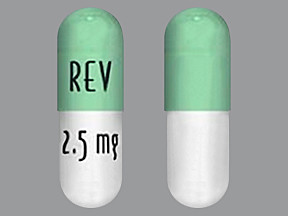
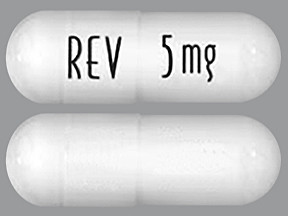
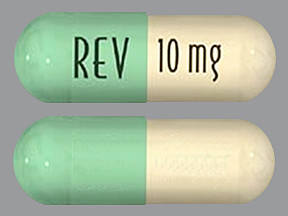
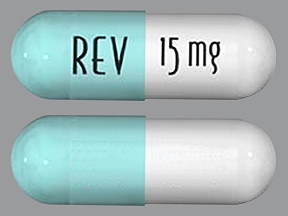
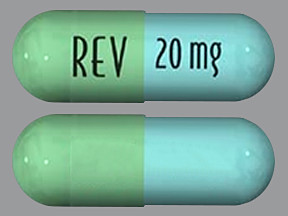
No Reviews Yet